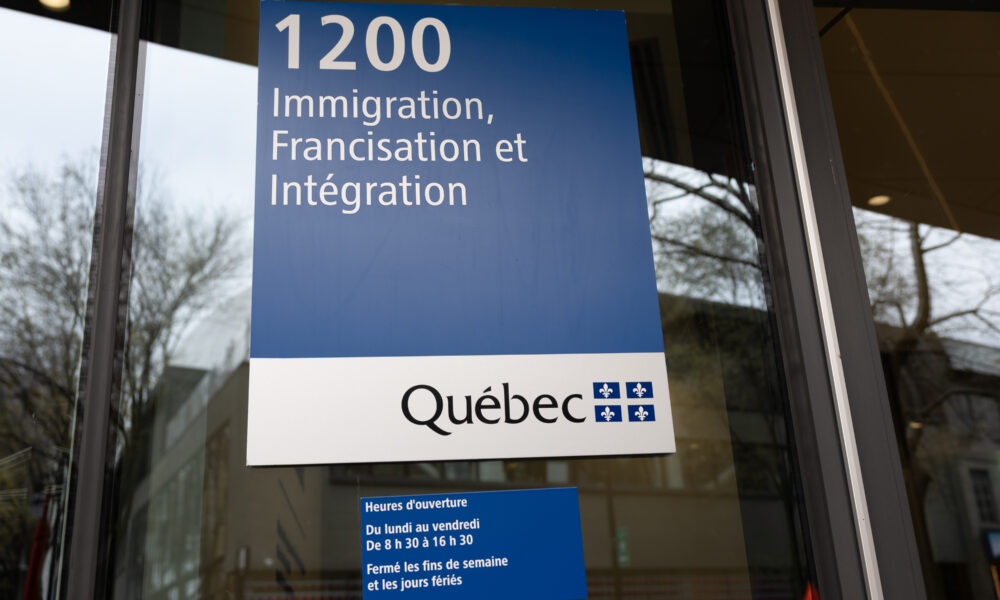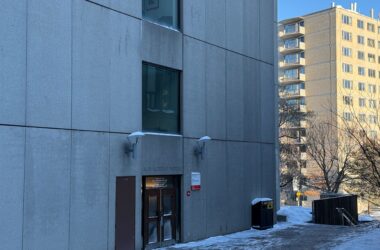The Quebec government ended the Quebec Experience Program (PEQ), which included the Quebec Graduates and Temporary Foreign Workers immigration streams, on Nov. 19. The removal of these two pathways leaves the Skilled Worker Selection Program (PSTQ) as the only major pathway for most temporary residents to permanently immigrate to Quebec. These changes follow the government’s cap of 45,000 permanent immigration admissions per year. The Tribune explains what the government’s immigration policy changes will entail for McGill students.
Why did the government remove these two pathways?
The CAQ has been limiting the PEQ for several years, starting with a restrictive reform in 2020, in response to a sharp increase in the number of non-permanent residents in Quebec over recent years. The Quebec government, led by the Coalition Avenir Québec (CAQ), has argued that the latest reforms will preserve the French language and make the immigration process more selective.
Under the province’s old immigration system, many international students became eligible for permanent residency shortly after graduation through the Quebec Graduates PEQ stream. The PEQ had already been suspended from October 2024 through June 2025 before its total cancellation this November.
How do these changes affect McGill students?
For many McGill students, the Quebec Graduates stream was the primary pathway to permanent residency. It allowed students with a Quebec diploma, such as a bachelor’s, master’s, or PhD, to apply for permanent residency soon after graduation, without requiring extensive work experience or French fluency. Its removal leaves the PSTQ as the only substantial way to stay in the province.
The PSTQ has stricter requirements, such as proof of B2-level spoken French, at least one year of eligible skilled work experience, and a competitive score on Arrima, Quebec’s point-based immigration system.
These changes have created greater uncertainty for students who do not possess the required level of French proficiency and had planned to remain in Quebec after graduation. Students with a federal post-graduation work permit (PGWP) now face language barriers that previously did not exist.
What pathways to permanent residency still exist for students?
The PSTQ is now the main pathway to permanent residency for temporary residents of Quebec, including graduating students. Applicants can submit a profile through Arrima and may be selected based on various criteria, such as their French proficiency, work experience, and education. Students who are able to improve their French to the B2 level will gain a significant advantage in the Arrima point system.
Students may also reconsider immigrating to Quebec altogether, given that other provinces have more accessible immigration pathways through their Provincial Nominee Programs. For example, the Ontario Immigration Nominee Program’s Employer Job Offer: International Student stream allows graduates with a job offer in a skilled position in the province to apply directly for nomination, without needing the points-based ranking used in Quebec. This pathway does not require any job experience, unlike Quebec’s requirement of one year of skilled work to gain residency status.
What transitional measures exist for affected students?
The government has introduced limited transitional measures for individuals affected by the changes. Those who submitted a complete application for residency before Nov. 19 will still be evaluated under the old rules, but students who were planning to apply are no longer eligible.
While McGill’s International Student Services does not offer advising on permanent residency, students with immigration concerns may contact them for help with temporary immigration documents and maintaining student immigration status.
What are the criticisms of these changes?
Various organizations have levied criticisms against the new changes. The Canadian Immigration Lawyers’ Association condemned the changes for being non-transparent, harming Quebec’s attractiveness to foreign students who hope to fully immigrate to Canada after their educational program. The association also raised concerns about the lack of transitional measures in place for graduate students, who had expected to apply for residency through now-cancelled streams. Additionally, the Bureau de coopération interuniversitaire has criticized the changes for reducing international interest in the province’s educational sector.









